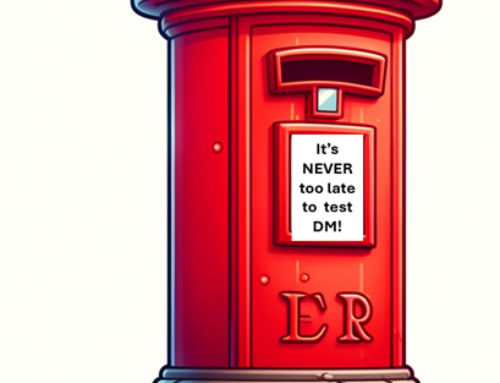Fundraising is the lifeblood of any charitable organisation. Without it the organisation ceases to exist. However, it has never been harder for fundraisers to raise money. Donation levels are down but the number of registered charities is rising. Competition is fierce and marketing is one of the most effective ways of building brand and cause awareness which has a proven correlation with donation levels. The problem is that marketing itself is a minefield. Seemingly every week a new proposal or legislative framework is mooted making it extremely difficult to keep track of what is and isn’t allowed. FPS, The Digital Economy Bill, GDPR and a new ICO are just a few of the issues charity marketers are currently facing – all of which bring with them a set of new rules, laws and best practices. It is no wonder, therefore, that many third sector organisations are dialing down their direct marketing activity in fear of tripping up and being fined or (perhaps worse) being harangued and hung out to dry by the Daily Mail. Marketing has never been so confusing so we’ve compiled a guide to the legislation that is currently being considered and an ‘at-a-glance’ guide to what charities must currently adhere to.
Fundraising Preference Service
The Fundraising Preference Service is an initiative that is being introduced as a result of the mistargeting of the vulnerable by charities. It aims to provide consumers with a reset button. If they have had enough of charities contacting them they can register on the FPS and all further communication will stop – irrespective of whether they are an existing donor. The latest update is that rather than requiring charities to screen their mailing and call lists against the FPS, the fundraising regulator will proactively inform charities if any of their supporters have signed up to the service. Up until now it has been assumed that charities would be required to screen against the FPS as a part of their ongoing data hygiene regime. It is thought that FPS will come into force in April 2017. It is still not known whether smaller charities will be exempt, but for the larger organisations compliance will be mandatory. An overview of FPS can be found here: https://www.fundraisingregulator.org.uk/support-advice-for-donors/the-fundraising-preference-service/
The Digital Economy Bill
In mid-September the Digital Economy Bill had its second reading in Parliament and has now progressed through to the Committee Stage. The Bill is a large one and covers many different areas. Its aim is to make the UK the most digital nation in the world. It contains amongst other things provisions for electronic communications infrastructure, restricting access to online pornography, protection of intellectual property and data sharing. Its relevance to charity marketers is Part Six of the Bill which contains a clause about direct marketing governance. It proposes to put the ICO’s Direct Marketing Guidance (https://ico.org.uk/media/for-organisations/documents/1555/direct-marketing-guidance.pdf) on a statutory footing. It is currently simply that – a guide. Organisations are not obligated to observe by its rules and there is no consequence for an organisation that fails to comply with it. Consequently, the non-statutory nature of the guidance has led to difficulty in prosecuting firms that breach these rules. It is expected that the Bill will eventually become Law in Spring 2017. Consequently charity direct marketers have six months to make themselves familiar with the guidance and ensure they will be compliant early next year. Any charity that fails to do so will find themselves hit with a hefty fine. The Digital Economy Bill Guidance Notes can be read here: http://www.publications.parliament.uk/pa/bills/cbill/2016-2017/0045/en/17045en.pdf
General Data Protection Regulation
GDPR comes into force on 25th May 2018 and is a new directive for EU members covering data protection. By then it is likely that the UK will be well on the way to Brexiting, however, experts believe that the ICO will chose to adopt/retain GDPR either in whole or in part. Consequently, marketers will be legally obliged to comply with its dictates which will include opted-in consent to receiving direct marketing communications and the requirement to delete a person’s data if they revoke their consent. Non-compliance will result in the heaviest fines ever proposed (up to 4 per cent of global turnover). This is the big one and means that the focus for fundraisers will be on retaining permissioned contacts. Solid data hygiene practices will be crucial. For example 7 million people move house in the UK each year and research shows that charities are classified by these people as ‘non-essential’ in terms of telling them they’ve moved house. This means that fundraisers risk losing track of a significant proportion of their opted-in database. Using goneaway suppression files and reconnect solutions means that charities can identify and remove the people that have moved house from their mailing lists, thus reducing the costs of the campaign, but also – more importantly – trace the new address of the opted-in donor. A complete guide to GDPR can be found here: https://ico.org.uk/for-organisations/data-protection-reform/overview-of-the-gdpr/
At-a-glance guide to offline direct marketing







